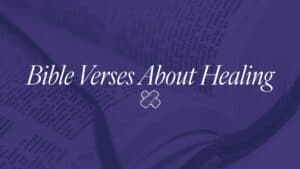In This Series:
Nearly one in two Americans (133 million) live with chronic conditions and illnesses, such as arthritis, multiple sclerosis (MS), diabetes and lupus.1
Their symptoms – like pain, fatigue, muscle aches and weakness, disturbances in vision, cognitive difficulty, intestinal distress and memory loss – aren’t always visible to the naked eye. Harder still, friends, family and co-workers can’t always recognize a sense of loss, loneliness and isolation.
Despite the obstacles sufferers must overcome on a daily basis, experts agree that, yes, people living with chronic conditions can live full and meaningful lives, regardless of the severity of their condition.
In this series of articles, we want to explore the impact chronic illness has on life and relationships. You’ll learn how sufferers develop rich prayer lives and intimacy with God, rediscover latent gifts and abilities‚ even launch new ministries and careers. Faced with physical and emotional limitations, they discover joy in life’s simple pleasures – the laughter of a child, God’s artistry in nature and a slower, more reflective pace of life.
Mental health experts, pastors and the chronically ill weigh in on the issues that matter most‚ how to adjust to life, rebuilding your life after the diagnosis and what the Bible says about pain and suffering.
We talk about the grieving process, feelings of purposeless and the loss of identity those with chronic illness often experience. We discover that, although our chronic illness robs us of many aspects of life, it cannot take from us our greatest freedom‚ to choose God in the midst of our suffering, to seek His glory despite our pain.
In his book, Man’s Search for Meaning, Holocaust survivor Dr. Viktor Frankl shares this story:
“We who lived in concentration camps can remember the men who walked through the huts comforting others, giving away their last piece of bread. They may have been few in number, but they offer sufficient proof that everything can be taken from a man but one thing: the last of the human freedoms‚ to choose one’s attitude in any given set of circumstances, to choose one’s own way. “
(Available online at PBS.org: http://www.pbs.org/wgbh/questionofgod/voices/frankl.html)
We can choose to become bitter about our illness, or we can choose to use it as a catalyst for growth. We can choose to focus on what we cannot do, or we can look for opportunities to use the abilities we have to honor God. We can choose to believe that the most significant seasons of our lives are past, or we can choose to believe God’s Word‚ that He delights in using the weak to confound the wise and that His power is made perfect in our weakness.
We hope this series of articles inspires you to make healthy choices‚ to seek God in your pain, to find the help and support you need and to turn obstacles into opportunities for growth.
The choice is yours.
*******
References:
1: Chronic Care in America: A 21st Century Challenge, a study of the Robert Wood Johnson Foundation & Partnership for Solutions: Johns Hopkins University, Baltimore, MD for the Robert Wood Johnson Foundation (September 2004 Update). “Chronic Conditions: Making the Case for Ongoing Care.” Available online here: http://www.partnershipforsolutions.org/DMS/files/chronicbook2004.pdf















